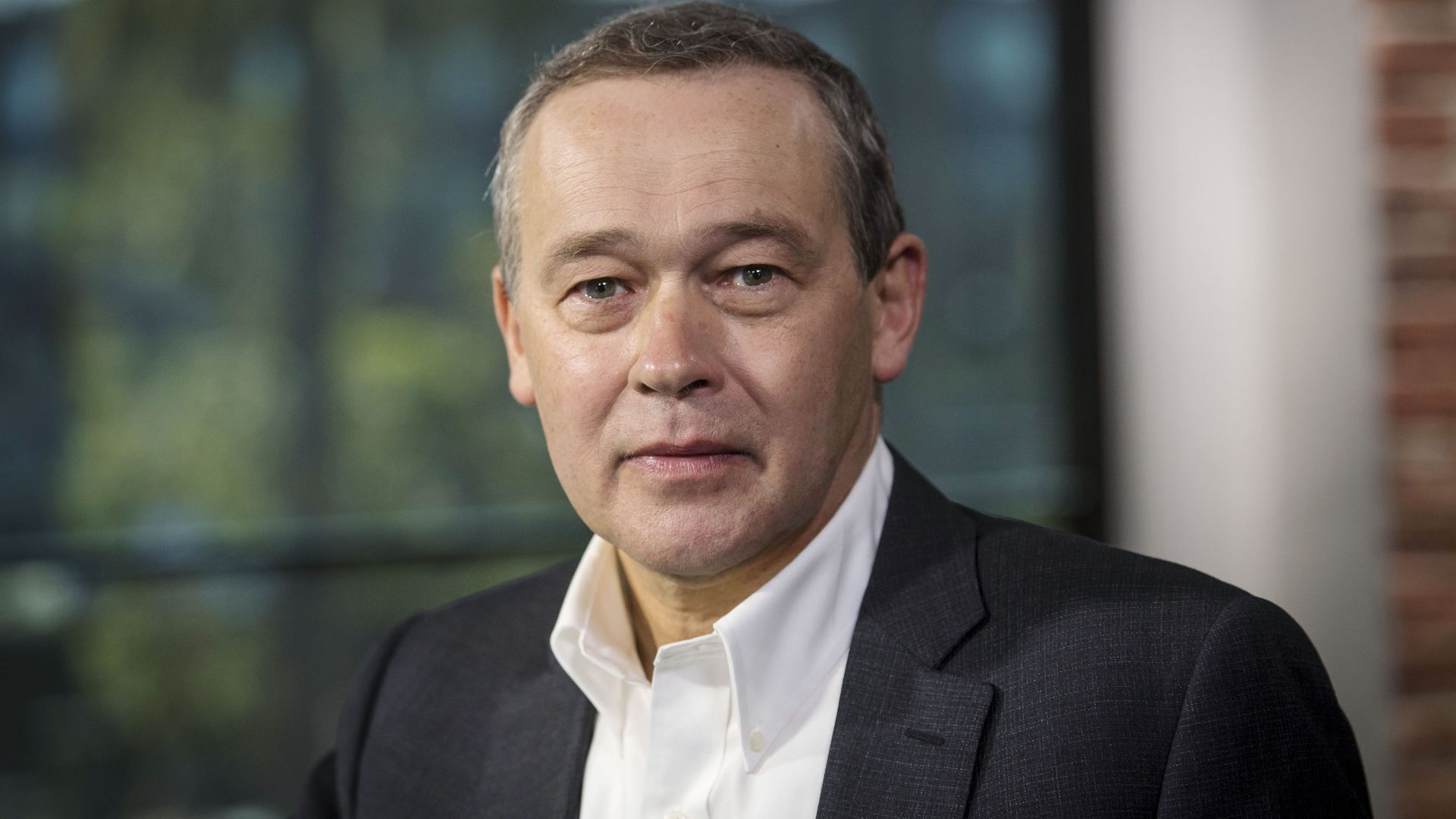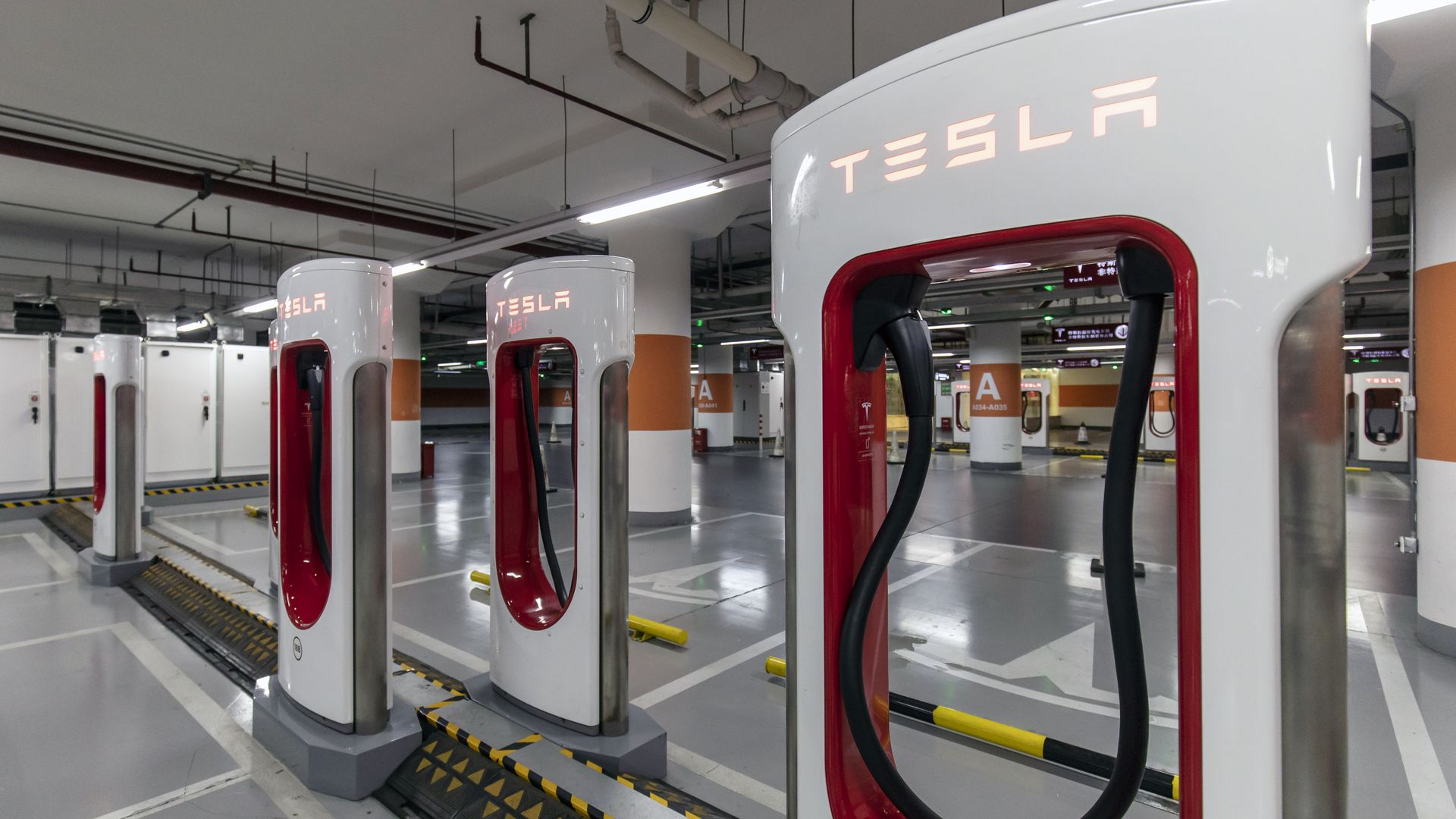| | | | | | | Presented By Northern Trust | | | | Axios Markets | | By Sam Ro ·Jul 27, 2021 | | Today's newsletter is 1,266 words, 5 minutes. 📈 of the day: 59%, the share of Texas business executives surveyed by the Dallas Fed who expect to pass higher costs to consumers through price increases. | | | | | | 1 big thing: Move-in date postponed |  Date: Census Bureau; Chart: Axios Visuals Prospective homeowners are so eager to buy that many are closing on new homes that aren't even close to move-in ready. Why it matters: Low mortgage rates and the desire for more space have fueled a housing boom where demand has far outstripped supply. - In turn, prices surged, making homes more unaffordable to increasingly frustrated consumers.
- However, many of the buyers who remain in the market seem to be getting more aggressive as an increasing share of new home buyers aren't waiting for construction to be completed before they sign.
By the numbers: In June, 76.6% of the new homes sold were either still under construction or not yet started. This is considerably higher than the 65% level where the metric trended before the pandemic. - For impatient buyers, this may continue to be the best option in the near term based on the inventory.
- While the supply of new homes for sale actually increased to 6.3 months' worth in June — the highest level since April 2020 — completed homes represented a record low 10.2% of this supply.
What they're saying: "In recent months, many homebuilders have resorted to intentionally slowing the pace of new sales to allow production to catch up," Ivy Zelman, CEO of housing research firm Zelman & Associates, tells Axios. - "Speculative homes are being started and will not be released for sale until later on in the construction process given the inflated cost risk, or in some cases upon completion. This should change the supply-demand landscape, as more inventory gets released for sale."
What to watch: In addition to the new home sales reports, monthly updates on homebuilder confidence from the NAHB and new residential construction from the Census Bureau will provide the earliest signals on if and when new home supplies improve materially. - "There are signs that this low inventory/tight housing market could be ending or softening soon," UBS senior U.S. economist Pablo Villanueva tells Axios. "Inventory of new homes for sale is rising, demand is softening, labor market is loosening, and supply chain disruptions probably peaked in Q2."
The bottom line: While new home sales are well off of their highs, the underlying details suggest there is nevertheless a sense of urgency among those who have the capacity to buy. |     | | | | | | 2. Catch up quick | | Asian stocks fell for a third straight trading session amid regulatory crackdowns by the Chinese government. (Reuters) American Airlines has warned its pilots of jet fuel shortages. (CNBC) Amazon denied a report saying the online retailer was considering accepting bitcoin payments. (Reuters) |     | | | | | | 3. One-on-one with Peter Rawlinson, CEO, Lucid Motors |  | | | Peter Rawlinson. Photo: David Paul Morris/Bloomberg via Getty Images | | | | "Pat me on the back when this thing is in production. We'll have a party [then]." — Lucid Motors CEO Peter Rawlinson on Lucid's completion of its merger with SPAC Churchill Capital Corp. IV. The pressure is on for Lucid Motors. Shares of the electric vehicle company closed up more than 10.6% on its first day of trading yesterday, Axios' Hope King writes. Why it matters: Lucid has yet to deliver any cars. The company went public by merging with a SPAC, Churchill Capital Corp. IV, in part to get enough cash to start production. - When it does, it will compete with Tesla and legacy automakers entering the EV market.
The big picture: Peter Rawlinson, the CEO and CTO of Lucid Motors, tells Axios that a year from now he hopes to be "making progressively more affordable versions" of the cars. - And five years from now, he expects performance levels of EVs, "paradoxically," to decline as the charging infrastructure expands.
- "Most people's cars [won't] be as high performance," he says. "If you reduce range, you inherently reduce power as well."
By the numbers: Lucid's top model, the $169,000 Air "Dream Edition" sedan, features 1,080 horsepower and a 503-mile range per charge. - For comparison, Tesla's top-line Model S "Plaid" has 1,020 horsepower and a 396-mile range, and costs $129,990.
- Mercedes' new EQS is expected to go for up to $185,000, with around 516 horsepower, and reach a range of 360 miles, per Car and Driver.
Lucid's deal with CCIV valued the EV maker at $24 billion and brought it $4.4 billion in capital. - Lucid says it has received more than 11,000 paid reservations.
What to watch: Feverish enthusiasm for EV companies has cooled, as investors look for less risky plays amid continuing chip shortages and a higher-than-expected rate of inflation. Continue reading: Lucid CEO says its tech could push EVs mainstream |     | | | | | | A message from Northern Trust | | How investors can navigate a changing tax environment | | |  | | | | The prospect of higher tax rates has investors rightfully concerned about their bottom line. A new report from The Northern Trust Institute explores how to address unrealized gains in your portfolio and implement other tax-efficient investing strategies. Learn more. | | | | | | 4. How Tesla was like most other companies in Q2 |  | | | Photo: Qilai Shen/Bloomberg via Getty Images | | | | Tesla's quarterly results echoed what many other companies have been communicating in recent weeks. Why it matters: The electric vehicle company has been one of the hottest growth stories of the last few years, with its stock decoupling from the rest of the market as it made shareholders and its CEO Elon Musk billions of dollars wealthier. - Despite its characteristics as a secular growth company, Tesla has delivered performance similar to more cyclical companies.
By the numbers: Tesla's record Q2 results included adjusted earnings of $1.45 per share, beating expectations for $0.94 per share. It joins the roughly 88% of companies that have beaten expectations so far. - The company cited "additional supply chain costs," just like numerous other companies and execs sounding the alarm on inflation.
- And yet, profit margins are expanding. Tesla reported an operating margin of 11.0% in Q2, up from 5.7% in the prior quarter and 5.4% last year. This is in line with a recent NABE survey that revealed widespread expectations for fatter margins despite higher costs.
- Tesla's inventory has gotten much tighter, shrinking to just nine days' worth of supply, down from 17 days of supply a year ago. Tight inventory levels have plagued industries ranging from housing to clothing to fast food.
Yes, but: Tesla's got a massive amount of bitcoin on its books, and during the quarter, it reported a $23 million impairment charge due to its lower value. - There's no disputing that this is an unusual item that you won't see in most earnings announcements.
The bottom line: Investors seeking to spice up their portfolios with volatile growth plays like Tesla should understand that it's not easy to find a stock that's totally shielded from forces affecting all businesses. |     | | | | | | 5. Opioid settlements won't bruise balance sheets |  Data: Company filings; Chart: Sara Wise/Axios Since 2016, the four companies involved in the latest opioid settlement — Johnson & Johnson, McKesson, AmerisourceBergen and Cardinal Health — have funneled a combined $100 billion to shareholders through stock buybacks and dividends, Axios' Bob Herman writes. Why it matters: If that's any indication, those companies won't have much trouble paying off a combined $26 billion settlement agreement. By the numbers: J&J represents 80% of the stock buyback and dividend cash from the four companies over the past five years. - J&J has much higher profit margins than the other three because it sells pharmaceuticals and medical devices alongside its consumer products.
- The company's dividends in 2020 alone totaled $10.5 billion — more than double the $5 billion it'll have to pay out over nine years, per the proposed settlement.
The distributors have lower profit margins, but Wall Street doesn't expect the settlement to absorb large chunks of their cash flows. - McKesson has to pay $7.9 billion over 18 years. The company, which just raised its dividend by 12% on Monday, has doled out almost $10 billion to shareholders in buybacks and dividends in the past five years.
- AmerisourceBergen and Cardinal Health will each pay $6.4 billion over 18 years. Those companies each averaged $1.1 billion in stock buybacks and dividends annually over the past five years.
What to watch: Whether the settlement sticks. States still have 30 days to sign, and then local governments have four months to join. |     | | | | | | A message from Northern Trust | | How to prepare your portfolio for tax reform | | |  | | | | Prepare your portfolio and wealth plan for change with research-based insights on the likelihood of proposed tax policy changes and cutting-edge wealth planning strategies for managing complex wealth from The Northern Trust Institute. Ready for reform? | | |  | | It'll help you deliver employee communications more effectively. | | | | | | Axios thanks our partners for supporting our newsletters. If you're interested in advertising, learn more here.
Sponsorship has no influence on editorial content. Axios, 3100 Clarendon Blvd, Suite 1300, Arlington VA 22201 | | | You received this email because you signed up for newsletters from Axios.
Change your preferences or unsubscribe here. | | | Was this email forwarded to you?
Sign up now to get Axios in your inbox. | | | | Follow Axios on social media:    | | | | | |
No comments:
Post a Comment